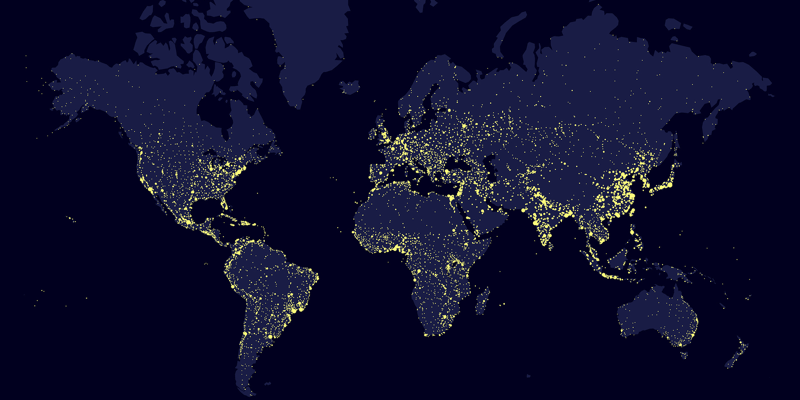
Greetings From the Future: 3 Ways Time Zone Differences Work to Your Advantage
Managing people who work outside of a central location can have its own obstacles, but when those professionals are located on opposite sides of the country, or on different continents altogether, time zone differences come into play. Some startup companies have sprung up solely to assist those who surmount scheduling issues in their day-to-day work.
It’s true: geographically distributed teams have well-documented challenges, with time differences at the top of the list. But what about the pluses of having teammates across the globe?
Here are a few reasons why some remote teams readily embrace time zone differences, and how they’ve made it a competitive advantage:
1. Your teammates work while you sleep.
Humans need rest. This point cannot be debated. Yet with remote work, organizational progress is always possible. (“In your dreams!” you might say, but in this case, that’s exactly right.) When teammates on one side of the globe are winding down and preparing to sign off for the day, others are just coming online, fresh and ready to continue the work.
“We like to compete on customer service, so it’s very important for us to have both sales and tech support people spread around the world to cover more time zones. Being geographically dispersed also gives us the advantage of moving faster…the software gets tested while the developers sleep, for instance.”
—Giacomo ‘Peldi’ Guilizzoni, Founder and CEO, Balsamiq
They pick up the proverbial project baton and keep efforts moving forward. So instead of waiting for another full workday to cycle through, important tests and critical tasks are continuously managed.
2. Your company is responsive 24/7.
When other companies leave customers with outsourced calling centers or voicemail, yours still has the lights on. More than that, they can speak with an actual employee—someone with insider knowledge who can address their comments or concerns in real time.
“People assume that time zones might be a major problem for a remote team, but we actually find them to be a huge advantage. When we work with a client, we’re able to build teams of designers who leverage time zones to give more coverage on projects and actually achieve more.”
—John Lay, Founder, Hanno
Not only can you be more attentive where supporting far-flung clients is concerned, you also have the ability to address internal technical issues on the spot, before they become more problematic.
3. Your organization stays ahead of new developments.
If only you could glimpse into a crystal ball to see the future, foretelling what current events, market changes, or weather patterns might help (or harm) your business. Alas, prognosticating can be a tricky thing.
When you’ve got a team assembled that spans multiple time zones, however, you’ve got eyes and ears on the latest developments. These include shifts happening within your industry (mergers, acquisitions, competitor product launches); your political landscape (election outcomes, civic movements, new laws and regulations); or your local market (product recalls, holidays, earthquakes). Having distributed teams is to remote work what newsjacking is to journalists the world over: a huge opportunity to steer clear of or leverage breaking news as it happens.
Your team is not only hyper-aware; they’re able to avoid critical shutdowns or downtime issues.
“We’ve been able to recruit and keep employees who would not want to work in a traditional contact center environment, but love our company because of the freedom remote work allows. Remote also helps us maintain our excellent uptime by ensuring that natural disasters, ISP outages and other catastrophes do not impact our ability to get the job done.”
—Natalie Fung, CEO, AnswerConnect
Creators of global products and services are also better equipped to create offerings that reflect the up-to-the-moment trends and preferences of their specific markets.
“If you’re building a global product as well: [the] ability to mimic the diversity of cultures, time zones and market nuances of your own (future) user base [help] to make sure you’re building what they need and love.”
—Sten Tamkivi, Co-Founder and CEO, Teleport
How do you manage across time zones? Let us know below.
By Kristi DePaul | Categories: Remote Management



